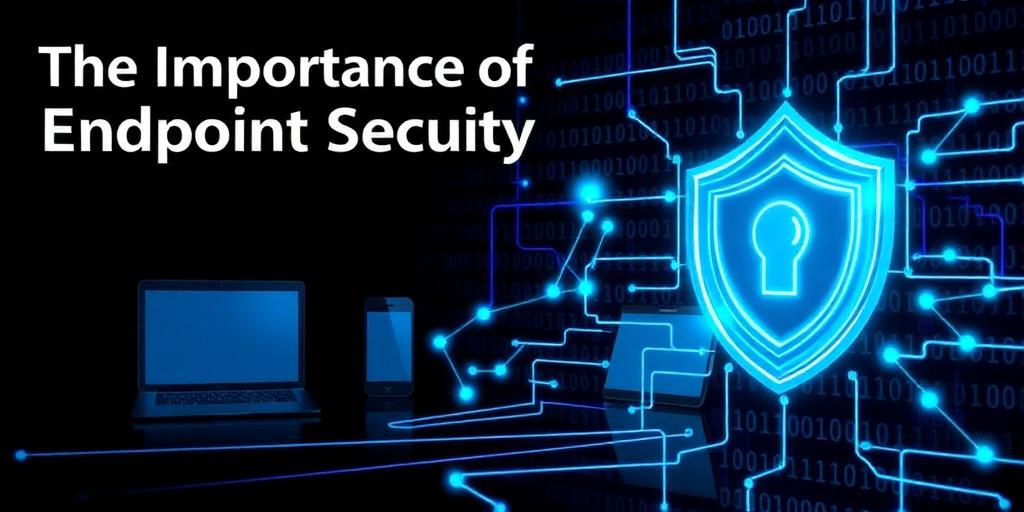Fortifying Your Digital Frontier: The Critical Importance of Endpoint Security
In today's interconnected digital landscape, organizations face an ever-evolving barrage of cyber threats. While perimeter defenses such as firewalls and intrusion detection systems remain vital, the reality is that the attack surface extends far beyond the traditional network edge. Every device connected to the corporate network—from laptops and desktops to mobile devices and servers—represents a potential entry point for malicious actors. This is precisely why the concept and implementation of robust endpoint security have become not merely advisable, but absolutely critical for business continuity and data integrity.
Endpoint security refers to the protection of individual devices (endpoints) that connect to a network. These devices are often the weakest links in an organization's cybersecurity chain, making them prime targets for sophisticated attacks. Understanding why endpoint security matters is fundamental to establishing a resilient defense strategy.
The Evolving Threat Landscape at the Endpoint
Modern cyber threats are designed to bypass traditional defenses. Phishing attacks, ransomware, zero-day exploits, and advanced persistent threats (APTs) frequently leverage endpoints as their initial breach vector. An employee inadvertently clicking a malicious link or opening an infected attachment can compromise an entire network. Without dedicated endpoint protection, these individual devices become gateways for data exfiltration, system disruption, and profound financial and reputational damage.
Furthermore, the rise of remote work and bring-your-own-device (BYOD) policies has exponentially expanded the number and diversity of endpoints. Each remote laptop or personal mobile device accessing corporate resources requires stringent security measures to prevent it from becoming a liability. This highlights the urgent need for comprehensive strategies focused on protecting devices from cyber threats at their very point of access and operation.
Key Pillars of Effective Endpoint Security
A truly effective endpoint security strategy integrates multiple layers of defense to provide holistic protection. This goes beyond simple antivirus software, incorporating advanced capabilities designed to detect, prevent, and respond to threats in real time. Key components include:
- Endpoint Detection and Response (EDR): EDR solutions continuously monitor endpoint activity, identify suspicious behaviors, and provide the tools for rapid investigation and response to security incidents.
- Next-Generation Antivirus (NGAV): Moving beyond signature-based detection, NGAV utilizes artificial intelligence and machine learning to identify and block both known and unknown threats, including fileless malware.
- Firewalls: Personal firewalls on endpoints control network traffic, blocking unauthorized access and preventing malware from communicating with command-and-control servers.
- Data Encryption: Encrypting data at rest and in transit on endpoints ensures that even if a device is compromised or stolen, sensitive information remains unreadable.
- Patch Management: Regularly updating operating systems and applications to patch known vulnerabilities is a foundational element of endpoint hygiene.
Implementing Best Practices for Endpoint Protection
Establishing robust endpoint security requires a strategic, multi-faceted approach. Organizations must prioritize best practices for endpoint protection to ensure comprehensive coverage:
- Adopt a Layered Security Approach: No single solution is foolproof. Combine NGAV, EDR, host-based firewalls, and data encryption for maximum efficacy.
- Implement Strong Access Controls: Utilize strong authentication methods (e.g., multi-factor authentication) and enforce the principle of least privilege, ensuring users only have access to resources necessary for their roles.
- Regularly Update and Patch: Maintain a rigorous schedule for patching and updating all endpoint software and operating systems to mitigate known vulnerabilities.
- Conduct Employee Training: Human error remains a significant factor in security breaches. Regular cybersecurity awareness training can empower employees to recognize and report suspicious activities.
- Monitor and Analyze Endpoint Activity: Leverage EDR capabilities to continuously monitor endpoints for anomalous behavior and quickly respond to potential threats.
- Establish Incident Response Plans: Develop clear, actionable plans for responding to endpoint security incidents to minimize damage and recovery time.
Conclusion: Endpoint Security as a Strategic Imperative
In an era where every device is a potential doorway for cybercriminals, the importance of cybersecurity for endpoints cannot be overstated. A proactive and comprehensive endpoint security strategy is no longer a luxury but a fundamental component of an organization's overall security posture. By investing in advanced endpoint protection and adhering to best practices, businesses can significantly reduce their risk of data breaches, maintain operational continuity, and safeguard their valuable digital assets in an increasingly hostile digital environment.









